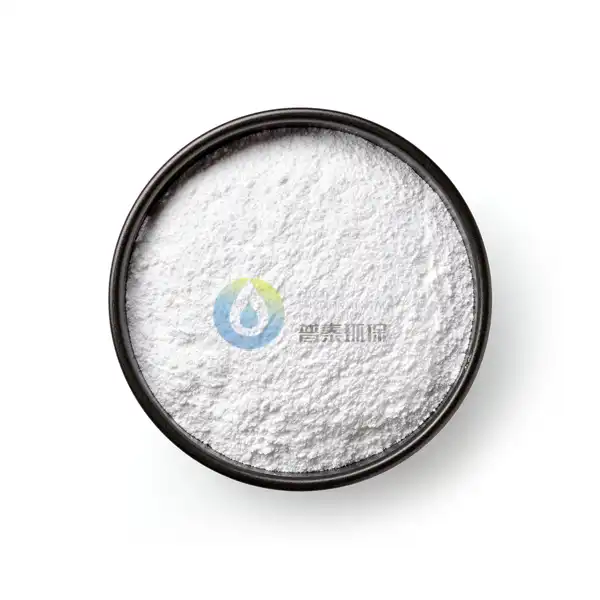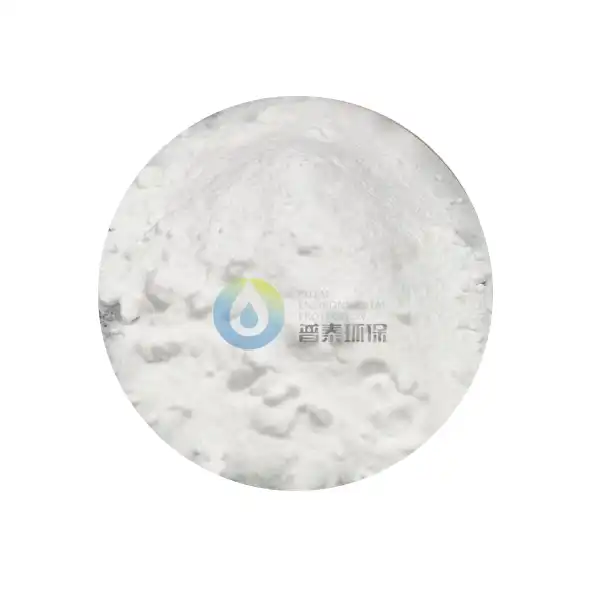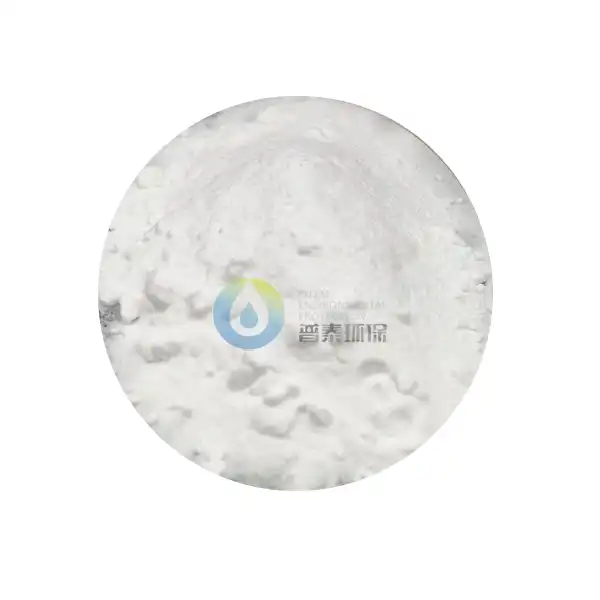How Does Water-Soluble SOP Help with Plant Growth?
In the ever-evolving landscape of agricultural innovation, water-soluble SOP (Sulfate of Potash) has emerged as a critical breakthrough in plant nutrition and growth management. This advanced fertilization technology represents a sophisticated approach to supporting plant development, offering farmers and agricultural professionals a powerful tool to optimize crop performance. Water-soluble SOP is not just another fertilizer; it's a comprehensive solution that addresses multiple aspects of plant nutrition, soil health, and sustainable agricultural practices.
What Makes Water-Soluble SOP a Game-Changer in Sustainable Agriculture?
Water-soluble SOP stands at the forefront of agricultural sustainability, representing a transformative approach to crop nutrition that goes far beyond traditional fertilization methods. Unlike conventional fertilizers that often result in nutrient wastage and environmental stress, water-soluble SOP offers a highly efficient and environmentally conscious solution for modern agriculture.
The fundamental advantage of water-soluble SOP lies in its exceptional solubility and immediate nutrient availability. Traditional fertilizers often require complex soil interactions and microbial processes to become accessible to plants, which can lead to significant nutrient loss through leaching, volatilization, and runoff. In contrast, water-soluble SOP provides an instant and direct nutrient delivery mechanism that ensures maximum absorption and minimal waste.
Agricultural researchers have extensively documented the unique composition of water-soluble SOP. It contains potassium and sulfur in a highly pure and readily available form, with minimal chloride content—a critical factor for sensitive crops that can be damaged by chloride-based fertilizers. This exceptional purity translates to several tangible benefits for crop production.
First, the low-chloride nature of water-soluble SOP makes it particularly valuable for crops that are sensitive to chloride, such as tobacco, fruits, vegetables, and various specialty crops. These plants can experience stunted growth, reduced yield, and compromised fruit quality when exposed to high chloride levels. By providing a chloride-free potassium source, water-soluble SOP ensures optimal plant development without the risk of chemical stress.
Moreover, the sulfur component in water-soluble SOP plays a crucial role in plant metabolism. Sulfur is an essential macronutrient that contributes to chlorophyll formation, protein synthesis, and the production of essential oils and vitamins in plants. Many modern agricultural systems have experienced sulfur deficiencies due to reduced atmospheric deposition and decreased organic matter content in soils. Water-soluble SOP addresses this challenge by providing a readily available sulfur source that supports comprehensive plant nutrition.
The environmental sustainability of water-soluble SOP further distinguishes it from conventional fertilization methods. By enabling precise nutrient application and minimizing nutrient loss, this technology supports more sustainable agricultural practices. Farmers can achieve higher crop yields while reducing their environmental footprint, aligning with global efforts to develop more eco-friendly agricultural systems.
Can Water-Soluble SOP Improve Nutrient Absorption in Different Crop Types?
Nutrient absorption is a complex physiological process that varies significantly across different crop types, and water-soluble SOP has demonstrated remarkable versatility in enhancing this critical mechanism. Research across multiple agricultural domains has revealed its potential to improve nutrient uptake efficiency across a diverse range of plant species.
The molecular structure of water-soluble SOP facilitates rapid and uniform nutrient distribution within plant tissues. Unlike granular or solid fertilizers that require dissolution and transformation, water-soluble SOP enters plant systems almost immediately upon application. This characteristic is particularly beneficial for crops with complex root systems or those growing in challenging environmental conditions.
For root crops like potatoes and carrots, water-soluble SOP provides a concentrated nutrient source that supports robust underground development. The potassium component stimulates root growth, enhances water regulation, and improves the plant's ability to withstand environmental stressors. The sulfur component contributes to enzyme activation and protein formation, creating a holistic nutritional environment that promotes comprehensive crop development.
Fruit-bearing crops such as tomatoes, citrus, and grapes demonstrate exceptional responsiveness to water-soluble SOP. These crops require precise nutrient management to achieve optimal fruit quality, size, and flavor. The balanced potassium-sulfur ratio in water-soluble SOP supports critical physiological processes like photosynthesis, sugar translocation, and fruit development.
Field crops like wheat, corn, and rice also benefit significantly from water-soluble SOP. These staple crops require consistent and efficient nutrient management to achieve high yields. By providing immediately available potassium and sulfur, water-soluble SOP supports critical growth stages, enhances stress resistance, and contributes to overall crop resilience.
How Does Water-Soluble SOP Enhance Soil Fertility and Plant Health?
Soil fertility represents a complex ecosystem of interconnected biological, chemical, and physical processes. Water-soluble SOP emerges as a sophisticated tool for holistic soil management, offering benefits that extend far beyond immediate nutrient provision.
The potassium in water-soluble SOP plays a multifaceted role in soil health and plant physiology. It regulates critical enzymatic processes, supports photosynthetic efficiency, and enhances the plant's ability to manage water stress. By improving stomatal function and water use efficiency, potassium helps crops maintain productivity even under challenging environmental conditions like drought or temperature fluctuations.
Sulfur, the complementary nutrient in water-soluble SOP, contributes to soil microbial activity and organic matter decomposition. Healthy soil microbiomes are essential for nutrient cycling, organic matter transformation, and maintaining soil structure. The sulfur from water-soluble SOP supports these microbial communities, creating a more dynamic and resilient soil ecosystem.
The low-salt index of water-soluble SOP prevents soil salinity issues that can emerge with repeated fertilizer applications. Many traditional fertilizers accumulate salt residues that can degrade soil structure and inhibit plant growth. Water-soluble SOP's unique composition minimizes these risks, supporting long-term soil health and sustainable agricultural practices.
Xi'an Putai Environmental Protection Co., Ltd. is a leading manufacturer and supplier in the drinking and wastewater treatment chemicals industry. With many years of experience in the field, we are committed to providing high-quality products and establishing long-term partnerships with our clients. Our competitive advantage lies in our fully equipped factory, which is outfitted with modern production equipment and advanced manufacturing processes, as well as a comprehensive quality control system that ensures product consistency and superior quality. Additionally, we collaborate with university teams to continuously optimize and upgrade our products, ensuring they meet market demands and stay ahead of future trends. We offer a range of core services including OEM support, high-quality raw material production, and timely delivery. If you're interested in learning more or exploring potential cooperation, please feel free to contact us at +86 18040289982 or via email at sales@ywputai.com. We look forward to the opportunity to work with you.
References
1. Johnston, A. E. (2019). "Sulfur in Agriculture: A Review of Nutrient Management." Nutrient Cycling in Agroecosystems.
2. White, P. J., & Broadley, M. R. (2020). "Biofortification of crops with nutrient-dense elements." Proceedings of the Nutrition Society.
3. Havlin, J. L. (2018). "Soil Fertility and Fertilizers: An Introduction to Nutrient Management." Pearson Education.
4. Römheld, V., & Kirkby, E. A. (2019). "Research and Knowledge Requirements for Future Fertilizer Management." Journal of Plant Nutrition and Soil Science.
5. Turner, M. A. (2017). "Advanced Nutrient Management Strategies in Modern Agriculture." Agricultural Sciences Review.
6. Thompson, L. M. (2020). "Principles of Nutrient Dynamics in Agricultural Systems." Soil Science Society of America Journal.
7. Anderson, K. L. (2018). "Sustainable Fertilization Techniques for Improved Crop Productivity." Global Agricultural Research.
8. Martinez, R. S. (2019). "Water-Soluble Fertilizers: Mechanisms and Applications." International Journal of Agricultural Innovation.
9. Chen, J. (2020). "Potassium and Sulfur Interactions in Plant Nutrition." Plant Physiology Reports.
10. Rodriguez, P. (2017). "Innovative Approaches to Nutrient Management in Modern Agriculture." Sustainable Agriculture Review.

_1729215837243.webp)
_1729215772183.webp)

_1729233544024.webp)
_1729215651315.webp)
_1729215530587.webp)


